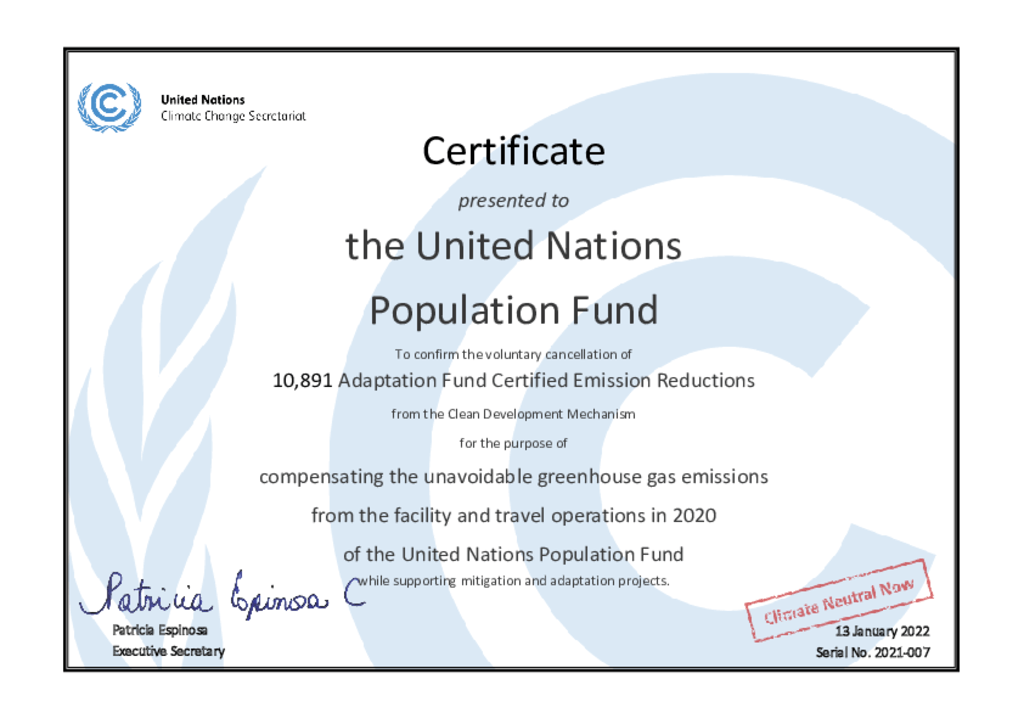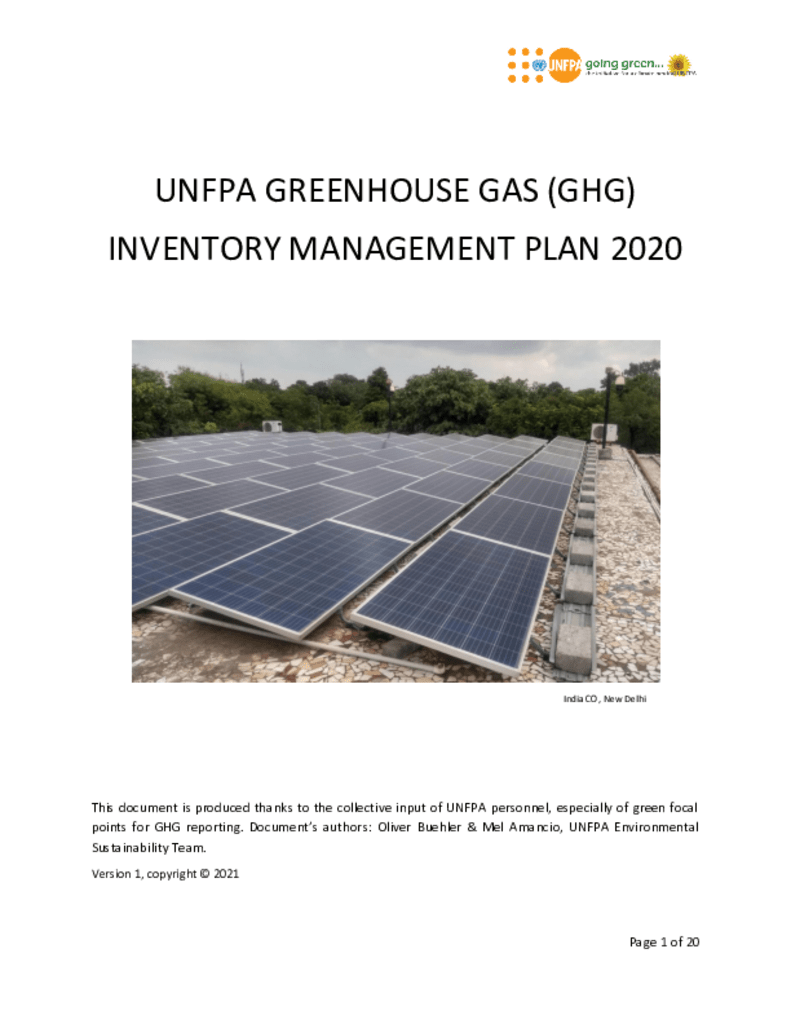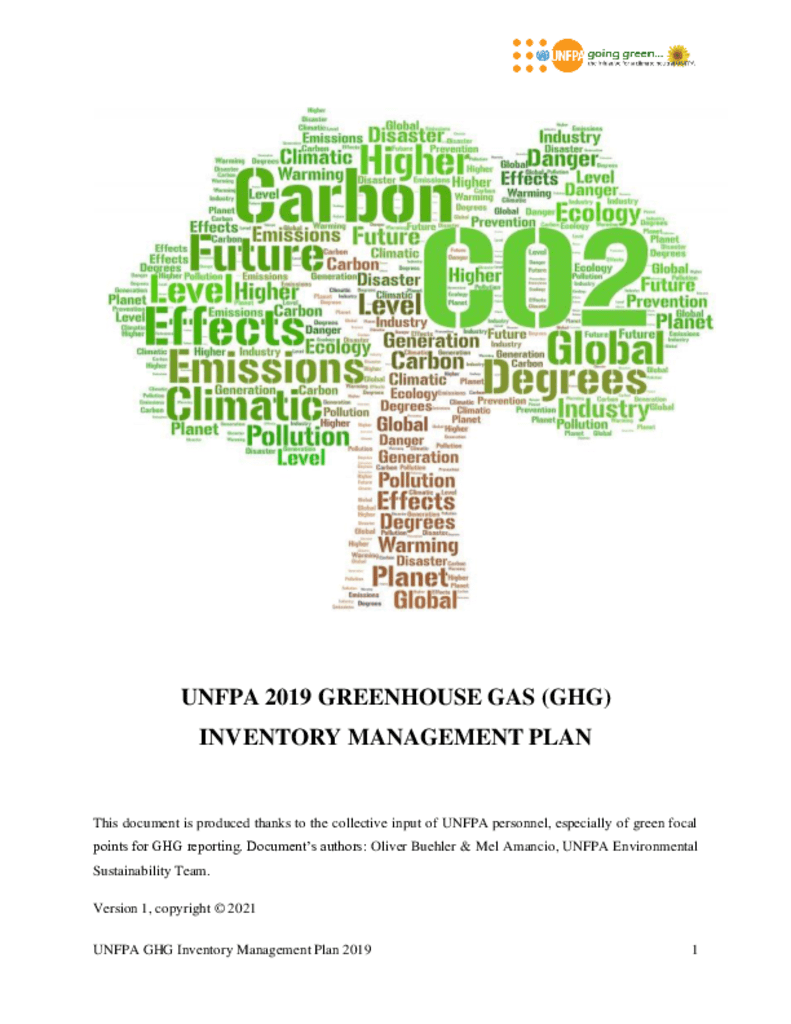Corporate Environmental Responsibility in UNFPA
At UNFPA, the United Nations Population Fund, we believe that local action is essential to drive global progress towards a climate-friendly, sustainable future. We are committed to leading by example by being a climate neutral organization that continues to reduce its overall impact on the environment. We do so by reducing our own carbon footprint, waste and water usage and by promoting a culture of sustainability across the organization. For UNFPA, environmental responsibility means working to ensure not only the health and rights of women, girls and young people, but also the health of the planet they depend on.
-Dr. Natalia Kanem, Executive Director, United Nations Population Fund (UNFPA)
UNFPA highlights
A Climate Neutral UNFPA - What are we doing?
UNFPA's 2021 organization-wide environmental footprint assessment showed that its overall greenhouse emissions amounted to 9,127 tCO2eq. This translates into 1.72 tCO2 per personnel. This means that since 2010, UNFPA’s emissions per capita have been reduced by 74%. Emissions in 2021 are still reduced mainly due to the Covid-19 pandemic, which caused the halt in international travel and the closure of many offices.
Early 2021, the UNFPA Environmental Efficiency Strategy was approved, putting the Agency on track towards reaching the objectives of the Strategy for Sustainability Management in the UN system 2020-2030, approved in 2019. The main goal of this strategy is to reduce the UN system's overall GHG emissions by 45% by 2030, aligning with the Paris Agreement objectives, which aims to limit global warming to 1.5°C. On top of that, this strategy also addresses environmental issues under six management functions: Procurement, Human Resources, Facilities management, Events, ICT and Travel.
Since 2018, UNFPA has been measuring emissions from small sub-offices, which resulted in an increase of overall emissions but provided a more accurate number of total UNFPA emissions. In 2018 and 2019 overall per capita emissions only increased slightly through this expansion of our boundaries, showing that, broadly, UNFPA is on the right track.
Our Inventory Management Plan explains in detail the boundaries and methodology used for measuring our emissions.
UNFPA has offset its emissions by purchasing and cancelling Certified Emission Reductions. So UNFPA is climate neutral since 2014 well ahead of the 2020 deadline provided by the Secretary-General.Since July 2015 UNFPA has imposed an organisation wide carbon surcharge of 2% on travel tickets issued by the organisation. By collecting this surcharge UNFPA can further invest in its environmental sustainability efforts around the globe and in the continuous offsetting of its emissions


